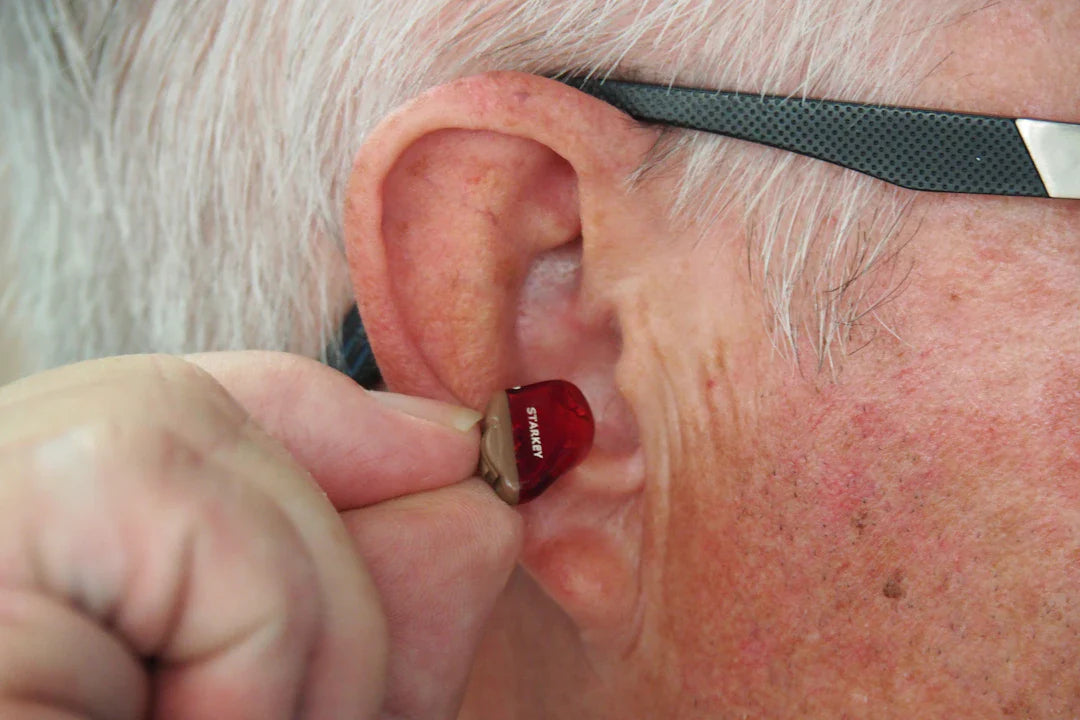Advocating for yourself in the hearing healthcare community is a vital aspect of ensuring you receive the best possible care and support for your hearing health. Whether dealing with hearing loss, considering hearing aids, or exploring audiology services, understanding how to effectively communicate your needs can significantly improve your overall experience. In this article, we will guide you through the necessary steps to advocate for yourself confidently and effectively in this vital healthcare sector.
Understanding the Role of Audiology in Your Hearing Care
Audiology plays a profound role in the identification, diagnosis, and management of hearing loss. Audiologists are experts trained to evaluate hearing capabilities and provide personalised recommendations, which may include hearing aids or other assistive devices. When you engage with hearing healthcare professionals, it’s essential to understand how they can assist you and what you need to advocate for your specific needs.
What is Hearing Loss?
Hearing loss can manifest in various forms, whether it be age-related, noise-induced, or due to infection or disease. Understanding your unique type of hearing loss can help you communicate effectively with healthcare professionals. Are you experiencing difficulty in understanding conversations, or do you find certain sounds bothersome? Highlighting these issues can help audiologists recommend the most suitable solutions. Moreover, the Phonak Slim L90 can be an option worth discussing if hearing aids are necessary for you.
When to Seek Help in the Hearing Healthcare Community
Recognising when to seek help is crucial. If you suspect changes in your hearing ability, schedule a consultation with an audiology professional. Consider proactive engagement with hearing care specialists if you experience:
- Difficulty following conversations, especially in noisy environments.
- Frequent asks for repetition.
- Feeling tired or strain from listening.
- Experiencing ringing or buzzing in the ears, known as tinnitus.
Additionally, there's a growing awareness about the importance of earwax removal. Build your communication around your experiences with earwax buildup as well, as it can sometimes affect hearing ability and overall ear health.
The Importance of Research in Your Hearing Health Journey
In this age of information, being equipped with knowledge about your condition and available treatments is imperative. When advocating for yourself in the hearing healthcare community, research various aspects related to your hearing care:
- **Understanding Different Types of Hearing Aids:** Learn about the benefits and features of various hearing aids, like the Phonak Slim L90. Familiarise yourself with how these devices can integrate into your daily life.
- **Audiology Best Practices:** Investigate the standards and practices audiologist use to recommend treatments and technology.
- **Important Questions to Ask:** Create a list of questions to address during your consultations. This prepping phase ensures you receive the best advice tailored specifically to your needs.
How to Communicate Your Needs Effectively
Once you are equipped with knowledge and have decided to seek help, the next step in advocating for yourself is effective communication. Here are some strategies to foster open dialogues with your audiologist or hearing care provider:
- **Be Honest About Your Experiences:** Share specific details about your hearing difficulties and how they affect your daily life. Provide examples, such as difficulty understanding voices in group settings.
- **Ask Questions:** Don’t hesitate to ask questions if you don’t understand something. Seeking clarification can provide greater insights into your hearing health.
- **Express your Preferences:** If you have an idea of the type of hearing aids or technology you’d prefer, voice your thoughts. Your comfort is paramount.
- **Seek Recommendations for Comprehensive Care:** Discuss your interest in complementary services, such as earwax removal, to enhance your hearing experience.
Understanding Your Rights as a Patient
Know that as a patient, you have rights when it comes to your healthcare. These include the right to receive information and to choose your health care provider. Being educated about your rights reinforces your power in the advocacy process and can lead to a more constructive relationship with your hearing care professionals.
Building a Support Network
Advocating for yourself doesn’t have to be a solitary journey. Building a support network can provide encouragement and share valuable insights based on their experiences. Consider the following:
- **Join Local or Online Support Groups:** Engaging with others who have similar experiences can offer additional perspectives and resources.
- **Seek Family Support:** Involve family members in discussions about your hearing health. Their understanding and support can aid your ability to advocate for yourself.
- **Consult with Professionals:** Establish a relationship with trustworthy hearing care providers who can help answer questions and guide your hearing health journey.
Keeping a Record of Your Hearing Concerns
Documenting your hearing experiences can aid in future consultations. Keep track of when you notice changes in your hearing and any patterns that emerge. This log can be a valuable resource for your audiologist, leading to more tailored recommendations.
Tracking the Latest Advances in Hearing Care
Stay informed about innovations in technology and audiology practices. For instance, explore new advancements in hearing aids and services. Familiarising yourself with options like the Phonak Slim L90 can aid in discussions about which devices might deliver the best results for your needs.
Being aware of trends within hearing healthcare enables you to ask the right questions and advocate for treatments that align with best practices and advancements.
Embracing Continuous Learning
Health is a continuous journey of learning. Advances in hearing care and treatment are always evolving, from new types of hearing aids to cutting-edge audiology practices. Keep abreast of these changes by subscribing to relevant publications, watching educational seminars, or finding trusted online platforms that focus on hearing health.
Making Decisions with Confidence
The ultimate goal in advocating for yourself is to feel confident in the decisions you make regarding your hearing care. Now that you've researched extensively, communicated your needs clearly, and built a supportive network, it’s time to take action:
- **Follow Through with Appointments:** Ensure that you keep your audiologist appointments for assessments and adjustments.
- **Trial Before You Buy:** Many audiologists offer trials for hearing aids. Take advantage of this option to experience different models and find what works best for you.
- **Manage Your Hearing Care Regularly:** Make regular check-ins a part of your hearing healthcare routine. This can include follow-up appointments, earwax removal sessions, and discussions about any ongoing concerns.
Your Voice Matters in the Hearing Community
Ultimately, advocating for yourself in the hearing healthcare community leads to better outcomes. By understanding your hearing health, communicating effectively with professionals, and remaining engaged in your care, you empower yourself to make informed decisions that lead to an enhanced quality of life. As you embark on this journey, remember that your voice matters not only for your care but also contributes to the broader conversation about hearing health. By sharing your experiences and advocacy efforts, you can inspire others and foster a community that prioritises hearing care.
So, take the leap! Start implementing these tips and transform your hearing care experience into one of empowerment and knowledge. Own your journey, and in doing so, pave the way for others in the community.




